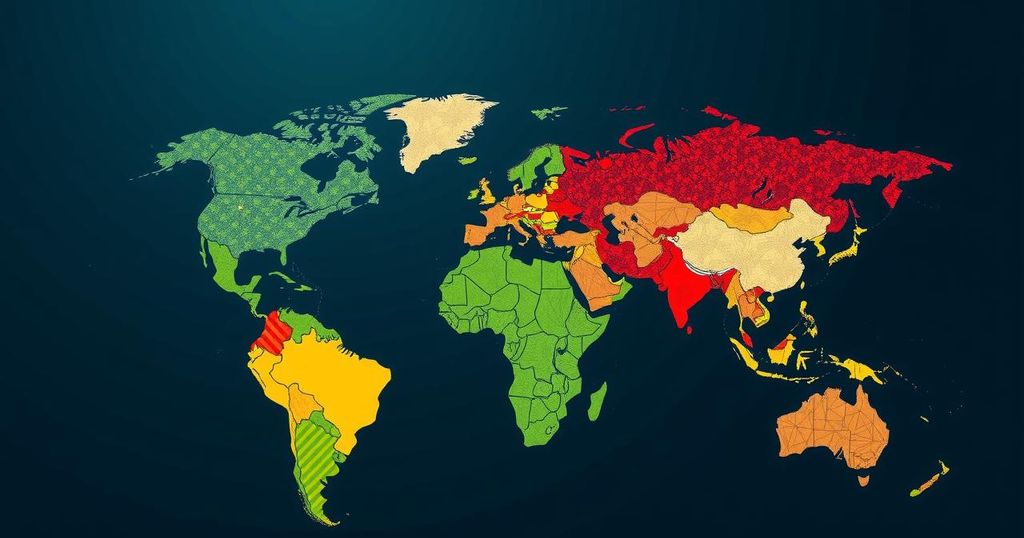Developing countries bear the brunt of climate change despite having low emissions, with historical responsibility resting primarily on wealthier regions. Upcoming COP29 talks in Baku will focus on addressing climate finance, particularly regarding loss and damage, and seeking commitments from developed nations to support affected countries. The outcome could shape equitable funding mechanisms and accountability for climate impacts.
The consequences of climate change have disproportionately impacted developing nations, which contribute the least to global greenhouse gas emissions. Despite their minimal contributions, these countries are experiencing the brunt of climate-related disasters, exacerbated by historical emissions primarily from wealthier regions like Europe and North America. The upcoming COP29 climate talks in Baku, Azerbaijan will focus on climate finance, particularly addressing the pressing question of loss and damage, and the responsibility of developed nations to assist those suffering from the adverse effects of climate change. Historically, fossil fuel consumption has driven economic growth, yet the costs associated with climate change have been unevenly distributed, falling heavily on the Global South. As developing nations grapple with recurring climatic disasters—such as devastating droughts in southern Africa—their limited resources must be diverted to remediate the aftermath, further hampering their economic progress. Current climate finance goals have yet to adequately address the scale of financial support needed to assist these vulnerable regions. The principle of “common but differentiated responsibilities” highlights that while all nations are responsible for combating climate change, the burdens must be shared in accordance with their historical contributions. The Warsaw Mechanism for Loss and Damage was established in recognition of the disproportionate impact on developing countries, culminating in the creation of a Loss and Damage Fund at the last COP meeting. However, funding has yet to materialize, and the structure of the fund remains unresolved. At COP29, discussions will center around the financial commitments necessary to support climate change mitigation and adaptation, with calls from Global South leaders for a significant increase in funding to address loss and damage, estimating required support to be between $724 billion and $1 trillion annually. If meaningful progress is to occur, disparate funding models must be addressed, emphasizing grants over loans to avoid exacerbating the debt burden of developing countries. While the historical context casts doubt on the likelihood of substantial commitments from wealthier nations, COP29 serves as a critical platform for raising awareness regarding the urgent need for justice in climate financing and accountability. If discussions acknowledge the scaling of funding aligned with the actual financial toll experienced by developing nations, they could pave the way for more equitable responses to climate change. In light of these challenges, COP29 must prioritize the needs of the most affected nations and create frameworks that ensure financial assistance flows freely and promptly to avert further devastation caused by climate change. Ultimately, the success of this year’s climate talks could determine how effectively the international community addresses climate injustices and assists those most in need.
The discourse surrounding climate change often centers on its uneven impacts, particularly affecting developing nations, which have contributed minimally to global emissions. As the climate crisis intensifies, these countries face catastrophic consequences, primarily due to historical emissions from industrialized nations. The COP climate meetings, including the upcoming COP29 in Baku, focus on addressing climate finance, loss and damage, and the financial obligations of wealthier countries to support vulnerable nations. Despite previous agreements, the structure of financial support remains uncertain, necessitating robust discussions about funding methodology and accountability.
In conclusion, the inequitable burden of climate change necessitates urgent action at COP29, emphasizing the need for developed nations to assume responsibility for their historical emissions. As discussions unfold regarding climate finance and loss and damage, it is imperative that frameworks are established to ensure that developing countries receive adequate support to mitigate the effects of climate change. Addressing these disparities not only serves justice but is crucial for the sustainable development of the most vulnerable communities worldwide.
Original Source: theconversation.com







